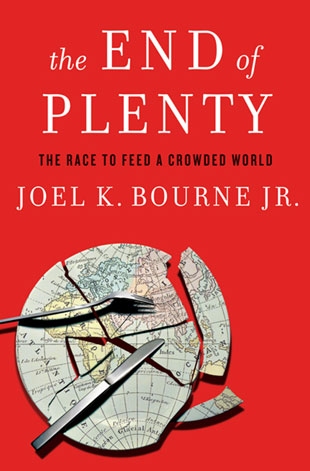"Producing food for more than 9 billion people without destroying the soil, water, oceans, and climate will be by far the greatest challenge humanity has ever faced. It will affect everyone, from poor farmers in Africa to the well-heeled suburban grocery shoppers of the West. The fate of the world's great ecosystems, from the Amazon rain forests to Africa's Serengeti Plain, equally hangs in the balance. The debate over the future of farming is already raging. Advocates of chemical agriculture say we need more technology, better genetics, and better chemicals to meet rising demand. Advocates of organic agriculture argue instead for more diversity, as well as methods that sequester carbon, reduce food waste, and help the world's small farmers be more productive.
"Either way, agriculture must change. None of our current agronomic systems have shown much capacity for weathering the vagaries of even the half degree of temperature rise that we've experienced thus far, much less the climate that is forecast to be hovering over our fields in a few short decades. An increase of at least 2°C before the end of the century now seems inevitable. If we hit 4°C, humanity's future looks bleak. Large swaths of the globe may no longer be able to sustain their populations, forcing tens -- if not hundreds of millions — to seek refuge elsewhere, spurring more violence and political conflict."
